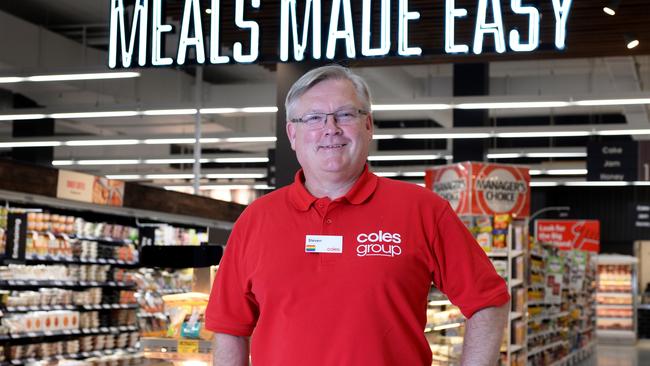
Here, in his own words, is what Coles CEO Steven Cain sees ahead in 2020.
Read more from the 2019 CEO Survey.
How is your company affected by low-interest rates and what is needed to boost the economy?
Lower interest rates and lower taxes are generally taken to benefit discretionary retailers more than businesses like ours which are more focused on essentials. But we’re in favour of any measures that will stimulate economic growth, as Australian families continue to face cost of living pressures and low real wages growth, which we see in the pace of consumer spending. For longer-term growth, it’s important that barriers to trade such as restrictions on trading hours are reduced as much as possible.
What is the impact of government regulations on your company including those applying to the financial sector?
Restrictive trading hours remain a barrier to growth in some markets, preventing customers from shopping when it suits them – which increasingly is on weekends and after work. In a competitive landscape increasingly populated by online competitors who are available around the clock, restricting the hours that some physical retailers are allowed to trade is out of step with the reality of customer needs. It is encouraging that in South Australia, where trading hours are currently the most restrictive, Treasurer Rob Lucas is making another attempt towards liberalisation that may bring that state’s trading hours into the 21st century.
What percentage of company revenues are spent on research and development and how is your company using technology to improve performance?
We have put technological transformation at the centre of our forward strategy, including automating manual tasks and simplifying above-store roles to remove duplication, allowing Coles to offset the impact of rising costs including energy and labour. We are also accelerating our use of data analytics and artificial intelligence to manage our supply chain, enabling us to maximise the freshness and availability of products while reducing waste and transport movements.
We increased our gross operating capex by more than 38 per cent in the past financial year, including almost $300m in efficiency initiatives to improve productivity as part of our Smarter Selling strategy. We are investing substantial capital in supply chain transformation, taking advantage of technological advances in automation, including our multi-year capital investment programs with warehouse automation experts Witron – a $950m commitment over six years – and online retail fulfilment specialists Ocado.
What are the three major policy issues facing the country and what should be done about them?
● Investment growth: Business investment in Australia is at its lowest share of GDP in 25 years, posing the economic risk of subdued GDP growth, a fall-off in productivity gains and a decline in real incomes. Economic growth needs to increase to generate the wages growth Australians expect and to provide the capacity to deal with domestic or global economic shock. Key to this is liberating businesses of all sizes to invest and innovate. Lifting business investment would help address both the short-term weakness in the economy and the medium-term need for a significant lift in productivity across the economy. The BCA is proposing a new investment allowance, available to businesses of all sizes and applying to all investment depreciable under current tax law.
● Innovation: Australia has to maximise the growth opportunities in digital technologies, including automation, Artificial Intelligence and machine learning. Coles is driving innovation in our stores and through our supply chain through partnerships with global technology leaders including Microsoft and automation experts Witron and Ocado. For Australia to realise the benefits of new technology we must constantly re-skill the workforce. The skilled worker visa system must allow Australian businesses to attract specialised talent in the IT stream to scale up digital innovation.
● Energy affordability and climate change: the country needs a long-term plan to manage risks associated with climate change while mitigating the impact on Australian households and the economy.
What are the major impediments to long term growth facing your company and what can or is being done about them?
● Regulation: Business has direct daily experience of how excessive regulation makes it harder to get things done, harder to plan with certainty for growth and investment and harder to keep prices as low as possible for customers. In Australia’s current economic climate, policymakers do not have the luxury of imposing an ever-rising tide of additional regulatory costs on Australian business. Coles is committed to best-practice compliance and is investing heavily to achieve this. We would expect that governments would also commit to best-practice regulation. The key calculation for policymakers when it comes to imposing regulation on the private sector should be whether the benefits to the community of any one stream of regulation are sufficient to outweigh the impact of compliance costs on the capacity of businesses to invest, to employ, to improve their product offering, and to contain cost-of-living increases to consumers.
● Payroll tax: Each state and territory have their own payroll tax threshold and tax rate as well as its own revenue office. Companies operating nationally seek a consistent application of payroll tax across the states. The Commonwealth should take the lead in harmonising the different payroll tax rules, both rates and thresholds. We would also recommend a single web portal for payroll tax returns.




Every year The Australian’s John Durie asks some of the biggest names in Australian business five key questions about what’s coming in the year ahead.